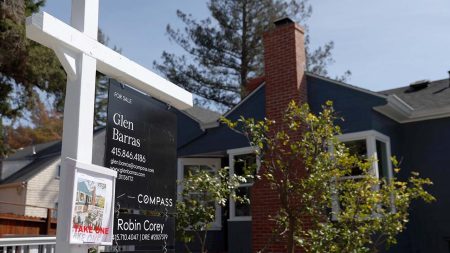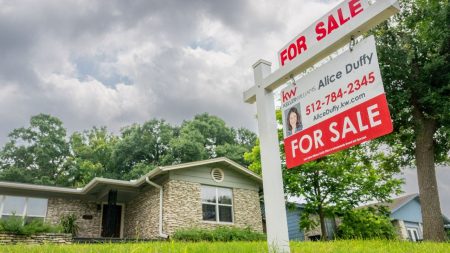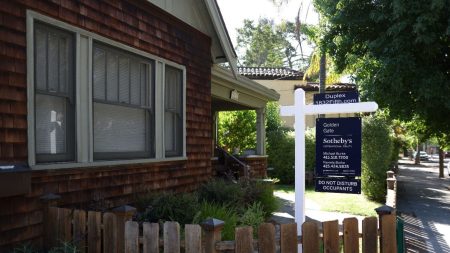
Should Congress and the Biden Administration fail to raise the debt ceiling and avoid a government default on the national debt, the housing market could face severe fallout, according to forecasts by Zillow.
Home sales could drop by up to 23% in the most severe month following a debt default, as opposed to a no-default baseline forecast, Zillow stated. In addition, home values could be 5% lower than projected in a no-default scenario by the end of 2024, Zillow said.
However, House Speaker Kevin McCarthy and President Joe Biden on Saturday night reached an agreement to raise the debt ceiling. Congress still needs to vote to pass it through both chambers.
Debt-ceiling negotiations had been ongoing as congressional Republicans sought spending cuts in exchange for raising the debt ceiling before the so-called “X-Date.” This is the date at which the Treasury can no longer take extraordinary measures to meet its debt obligations. That date is expected to arrive as soon as June 5, but almost certainly by August, Zillow said.
Nonetheless, the U.S. has never defaulted on its sovereign debt. Still, many voters believe failing to raise the debt ceiling would result in economic turmoil. In fact, 63% of voters said they believe failing to raise the debt ceiling would trigger economic catastrophe in America, according to a Fox News poll. In addition, 57% said a debt-ceiling increase should only happen with spending cuts, while 27% said the increase should happen regardless.
“The exact contours of a debt default scenario this summer are unclear, but also unimportant for the conclusion about its impact on the housing market,” Zillow said in its report. “Any major disruption to the economy and debt markets will have major repercussions for the housing market, chilling sales and raising borrowing costs, just when the market is beginning to stabilize and recover from the major cooldown of late 2022.”
If you’re concerned about the housing market, you can still find a suitable mortgage rate by shopping around. You can visit Credible to compare options from different lenders without affecting your credit score.
HOME VALUE APPRECIATION ADDS MORE THAN $120,000 IN WEALTH FOR MIDDLE-CLASS AMERICANS
Interest rates expected to rise if government defaults
If the government defaults, the average 30-year mortgage rate could peak to 8.4% in September, Zillow said. That would mark the highest mortgage rates since the beginning of the 2000s, according to an analysis by RocketMortgage.
“If the U.S. were to enter default in the coming months, one near-certain consequence would be rising debt yields and interest rates,” Zillow said in its report. “U.S. Treasury Bills (T-bills) provide some of the bedrock and benchmarks for ‘risk-free assets’ on which the economy and most financial models depend.”
“Introducing default risk, or at least the risk of delayed coupon payments, would be like an earthquake rattling that bedrock assumption, sending ripples through the financial system and causing investors to question the safety not just of T-bills but other assets as well,” Zillow continued. “Critically for the housing market, the interest rates on mortgages would almost certainly rise in concert.”
In fact, credit ratings agency Fitch Ratings on May 24 said it has placed the United States’ “AAA” rating on negative watch.
“The failure to reach a deal to raise or suspend the debt limit by the x-date would be a negative signal of the broader governance and willingness of the U.S. to honor its obligations in a timely fashion, which would be unlikely to be consistent with a ‘AAA’ rating, in Fitch’s view,” the rating agency said in a statement.
But in the event the government doesn’t default, mortgage rates are projected to gradually fall through the next year and a half, Zillow forecasted.
If you’re worried about mortgage rate hikes, you can find the best rate by shopping around. You can visit Credible to get your personalized rate in minutes.
AMERICA’S DEBT HITS NEW RECORD OF MORE THAN $17 TRILLION: NY FED
Default threat spurs recession fears
A recession is likely in the event of a government default, experts said.
“If negotiations fail and the US defaults, the global economy faces a catastrophe,” thinktank The Conference Board said in a podcast. “The US might see an instant recession, with a potential fall in GDP analogous to 2020’s pandemic recession at worst. And trade in US treasuries would likely halt, triggering a financial crisis and depreciation of the dollar that hampers trade and financial markets around the world.”
Spending cuts in the event of a default also could trigger a sharp rise in the unemployment rate, Zillow said.
The federal deficit stood at more than $1.3 trillion in fiscal year 2022, Zillow stated. And if the 2023 deficit is similar, the government would need to cut spending by that amount.
“Such a large reduction in spending would necessitate furloughs among federal and state employees, and likely trigger waves of layoffs at contractors and other employers more indirectly connected to federal spending,” Zillow said in its report. “The logic of a recession beginning might become self-perpetuating, as consumer and investor confidence fall amid market turmoil, leading employers to trim payrolls.”
If you want to lock in a suitable mortgage rate before potential increases, you could consider comparing your options today. You can visit Credible to speak with a mortgage expert and get your questions answered.
RECESSION FEARS RISE: MORE THAN HALF OF AMERICANS SAY THEY’D LOSE EVERYTHING
Have a finance-related question, but don’t know who to ask? Email The Credible Money Expert at [email protected] and your question might be answered by Credible in our Money Expert column.
Read the full article here









